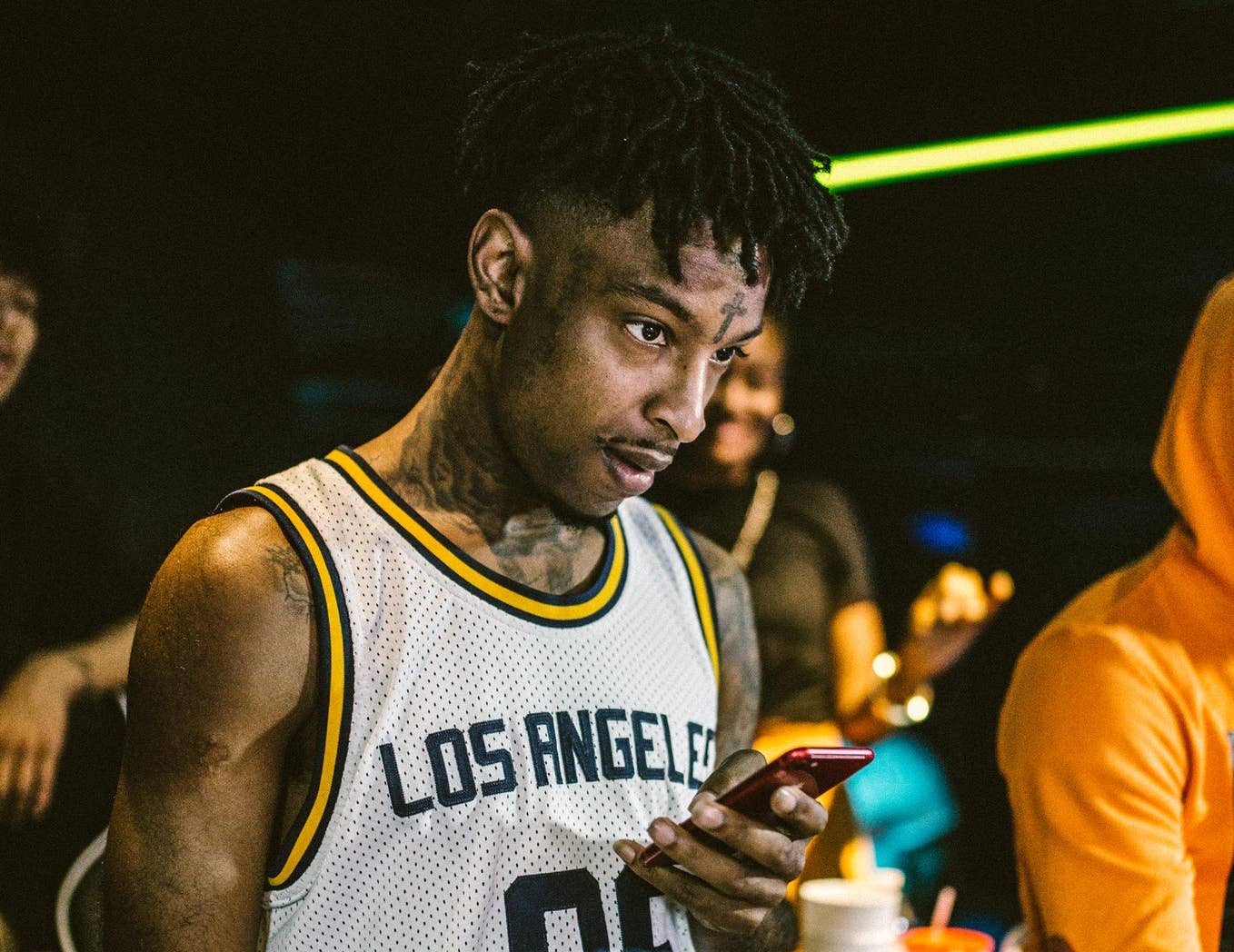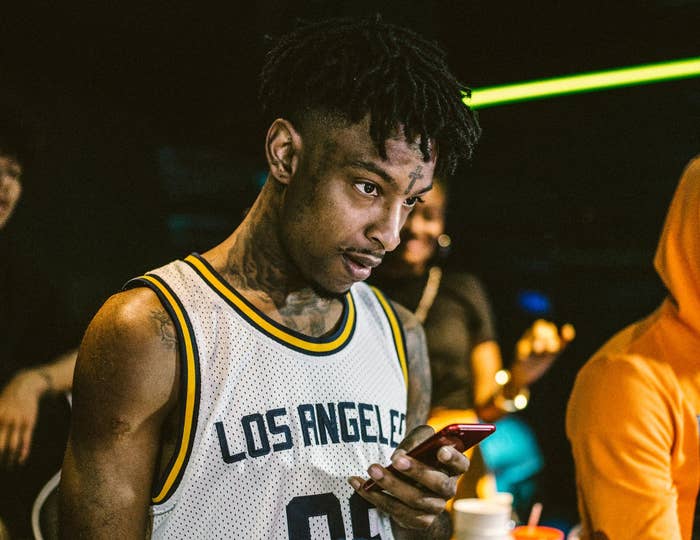
We're just days away from the 62nd Annual Grammy Awards and 21 Savage is nominated in the Best Rap Song and Best Rap Album categories for "A Lot" and I Am > I Was respectively.
"A Lot," the J. Cole-assisted intro to 21 Savage’s sophomore album, became an immediate fan-favorite. On the track, 21 reflects on how much he’s endured throughout his life, while J. Cole comments on the broken state of the music industry.
"Finding out 'A Lot' was nominated for a Grammy was great," 21 tells Complex. "This song means a lot to me because I was able to tell a story about everything I've been through and everything I’m going through now. To get recognized for that and to have people relate to it is a blessing."
The record was produced by DJ Dahi and J. White Did It during Spotify's songwriter's camp in June 2018. The workshop was a three-day event held in Atlanta, in which a diverse group of songwriters, producers, and artists were invited to collaborate with 21 Savage and Epic Records. Many of the songs created during the songshop, including “A Lot,” eventually found their way onto the final tracklist of I Am > I Was. This included first-time collaborations between 21 Savage and DJ Dahi, J. White, Cardo, FKi, and Nija Charles.
Dahi says "A Lot" was completed in "an hour or so," which is a testament to the fast collaborative bond he formed with J. White. "Me and DJ Dahi together, we're two totally different people with two totally different sounds," White adds. "For us to come together like we did, is absolutely amazing."
Now, they're each waiting to see if the song takes home a Grammy, but Dahi suggests its impact will live on far past awards season. "I think you can tell the record took on its own life, for what 21 was dealing with the entire year and what it did culturally," he says. "Overall, just to get the recognition is really cool. Win or lose, it shows that the move was important, and I think people recognize that."
Ahead of the Grammys, DJ Dahi and J. White spoke with Complex about Spotify’s songshop and the making of 21 Savage’s "A Lot." The interview, lightly edited and condensed for clarity, is below.
How did you get involved with Spotify's songshop?
DJ Dahi: I had done a session with 21 Savage a month or two beforehand. We caught a rapport working on a couple of song ideas, so they told me they were participating in the song camp in Atlanta. I'd heard about the camp and how much fun it felt from a creative standpoint. I'd heard how everybody really was there to have fun and create, and not try to make a hit record or compete with each other. It was my first time in Atlanta. It was my first time working with folks from the area and some that I've always been a fan of. It was great. It was super unexpected. The whole result of what actually came out of it was better than I ever thought, and I think the environment was really inclusive.
J. White: [VP of A&R at Epic Records] Ericka Coulter was like, "Jay, I really think this is a good opportunity for you to come and do the Spotify camp with 21 Savage." I was like, "I don't know, I don't really like doing camps." She was like, "No, it's with Spotify. It's going to be very different." So I came down, and it was something that I didn't expect. Spotify had a brunch with my peers there, so I felt at home already.
"I told 21, 'It would be dope for you to get over a soul sample.'" - DJ Dahi
What was the energy like?
DJ Dahi: It was very collaborative. I got there a little earlier than everybody, because there were a couple of songs that I wanted to finish, which we had started with 21. I got familiar with the studio, and 21 didn't come in until we said we had something to present to him. Sometimes we're in a room making music and the artist never actually hears it, and they're never in the room to give their input. That was a different thing that was going on, outside of the A&Rs and the Spotify staff pairing different creative writers and producers in different rooms.
I hopped around a couple of times. I was there for like three days. The first day I was with J. White. Then the second day, I think I was with Cardo Got Wings. The last day was with Kevin Thomas, and it was dope. The way it was set up was good, because if someone thought that you could do a song, you could still go to another room and you could come in and add your flavors. You didn't feel like everybody was there to make their own music. You just collaborated and opened up to other people's ideas, even if it didn't work out.
J. White: The energy was like everybody was first cousins. We all came there for the one goal of giving 21 Savage some good records, and Spotify picked a nice amount of producers and topliners that complemented each other in the weirdest ways. It just felt like family.
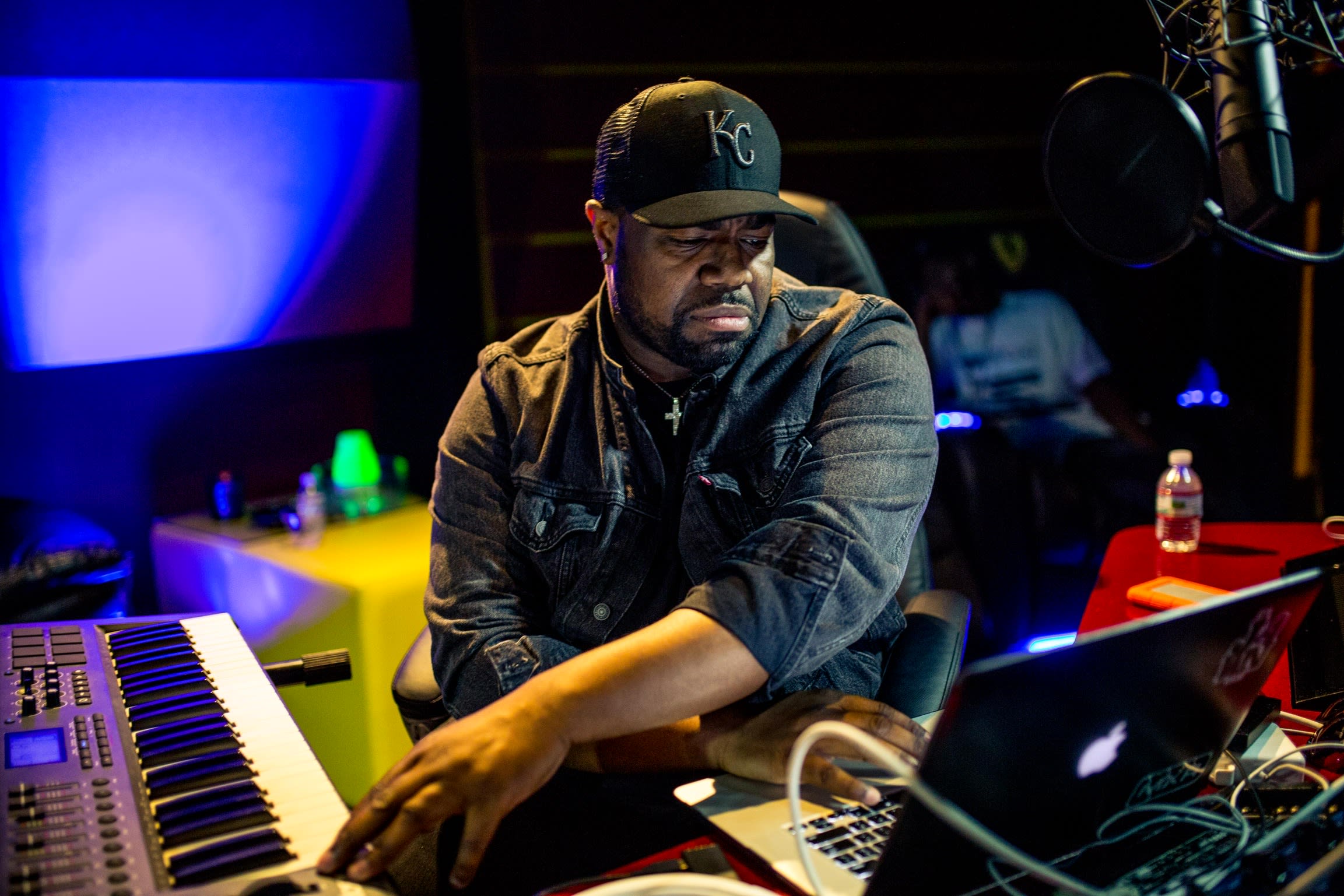
Can you tell the story behind the creation of "A Lot"?
DJ Dahi: I was waiting for J. White—just prepping ideas and putting stuff together. I had heard of J. White just through working with Cardi, and I was like, "Yo, this dude got passion." He's one of the top guys that people are looking for music from at this moment. When I met him, it was interesting, because he was like, "Yo, I'm a big fan of your music and you've done A, B, and C." Sometimes you don't realize what people know, because some people care about the people behind the scenes and some people don't. But we got in the studio together and came up with a couple of ideas.
I had this idea for an [East of Underground] sample for 21 a while back. I played it when we had a session a few months ago. I told him, "It would be dope for you to get over a soul sample. On some classic hip-hop feel, but with your pocket in the drums and your energy on that type of vibe." He was like, "Yeah, I'm with it. That's the kind of stuff I've been looking for." When I got with J., I ran through a couple of ideas and he said this is the one.
What J. did, which I really liked, was take it into a very different place that I wouldn't think about, which is kind of a Three 6 Mafia-influenced type of energy. We had these chopped and screwed vocals, DJ Scratch vibe, on top of the sample, and he played some samples on top of that. So I took that idea and recreated my own version of that. We started collecting little snippets of DJ Scratch melodies, and we made a chant vibe on top of the beat. It was dope. It's been taken to a place where it's become more of a process of samples on top of a beat, but it was like, this is something that feels regional. This feels like something people will play in their car with the sunroof down or the top down.
We worked for an hour or so. The next day, 21 was going around to different rooms and hearing his music. He came in and I played it. He was like, "Oh yeah, this is the intro. This is the intro to the album." From there, it was a matter of waiting to figure out when he was going to write the record and put everything together.
"This song means a lot to me because I was able to tell a story about everything I've been through and everything I’m going through now." - 21 Savage
J. White: I was sitting there, me and Dahi, and he's going through samples. I'm going through sounds. He clicked that sample. I was like, "What in the bleep chicken and gravy is this?" I said, "That's it right there. Let's go!" After that, the magic was made. I was at the camp for three hours, and I was part of 21 Savage's biggest single for the album. I credit Dahi for the record. I love that guy for having that sample on the record. I'm a hype guy. If I hear a sample, I'm trying to add the hypeness. I'm trying to add the "hood" to it. I'm trying to take it to Atlanta, Memphis, Tennessee. I'm trying to make that thing crunk. I put that stank on there. DJ Dahi, he had his own seasoning, and I said, "Well bro, it's missing the hot sauce. Here's the hot sauce.” Oink, oink, oink, oink. Now, we have a hit record.
When did you first hear the final record?
DJ Dahi: I remember I was back in Atlanta maybe a month later, and that's when I heard what Savage did to the record. When I heard it, I didn't understand the structure necessarily. Then when I heard the verse, I felt like he was kind of making a chant that people can sing along to.
J. White: I’m not going to front, I was not excited about having the intro. I was like, "Man, the intro? I don't want no intro to no record." In my head, I'm like, I want the single. When I think of intros, I think of the first record on the album to introduce the whole album, but not the single. When I heard the record, I said, "Oh, okay. Yeah, this is the intro.” This thing is absolutely amazing.
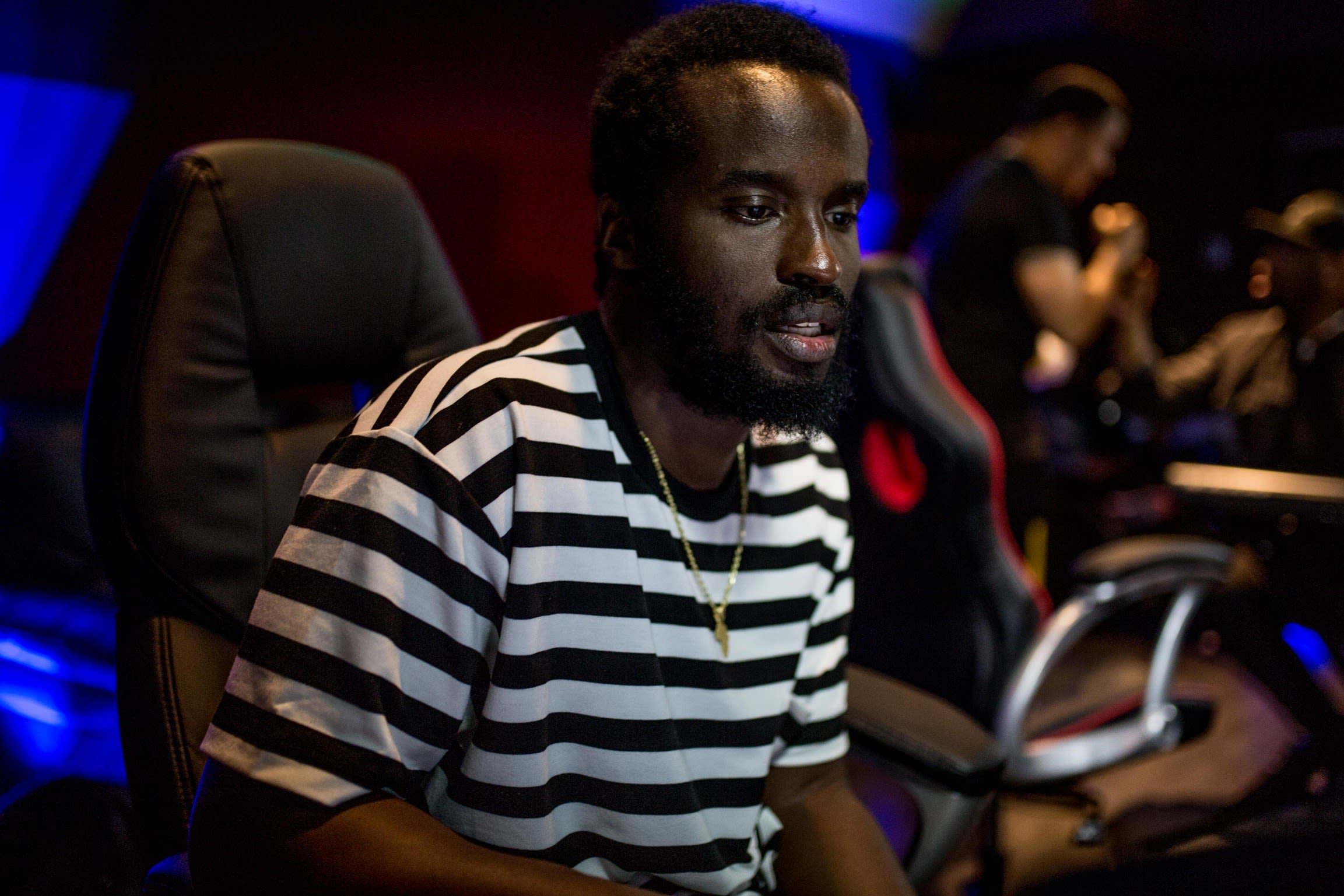
When did you realize J. Cole was also jumping on the record?
DJ Dahi: I was speaking to [21’s] A&R and she says, "We're trying to get feature on here and we just spoke to Cole." Cole's a good friend of mine. It's funny, this is our first record we've done together. I helped him do some stuff on 2014 Forest Hills Drive, but I didn't actually produce any records. I just helped him pick a couple of beats. I didn't even hear [the verse until] everyone was like, "Cole came in and gave us a crazy verse." I didn't hear it beforehand, but I knew what 21 had done and where the record went. And lo and behold, it was a real moment. It felt different for him, but it felt like it was a natural step. I definitely felt like it was the highlight of the year for me. The whole process of making the record was genuinely a positive experience.
"If I hear a sample, I'm trying to add the hypeness. I'm trying to add the 'hood' to it. I'm trying to take it to Atlanta, Memphis, Tennessee. I'm trying to make that thing crunk. I put that stank on there." - J. White
What do you think made this track so special?
J. White: There were a lot of things that made that record so special. What 21 Savage went through made that record so special. It was just a story on its own. The music behind it, and the sample that DJ Dahi found, made that record so special. Then J Cole, he's a whole other movie. We had all the ingredients, but J Cole was the oven. And bing! It's done.
You said you made the song in an hour. Is that typical for you?
DJ Dahi: It depends. With music, sometimes collaborations could happen in a matter of 15 minutes, 30 minutes, or sometimes two hours. It's weird. It almost shouldn't matter. If you get it, you get it. And if you don't get it, sometimes you just leave the room and take a little break. You just have to be present for the moment. Keep working, keep trying things. So yeah, the idea that it was an hour, it felt longer 'cause we were talking. I had come in with so many ideas already set up. [J. White] came in and added his flavor to it.
J. White: I'd say this, when two people know what they're doing, and they understand who they are within themselves, and there's no ego, it can be that short.
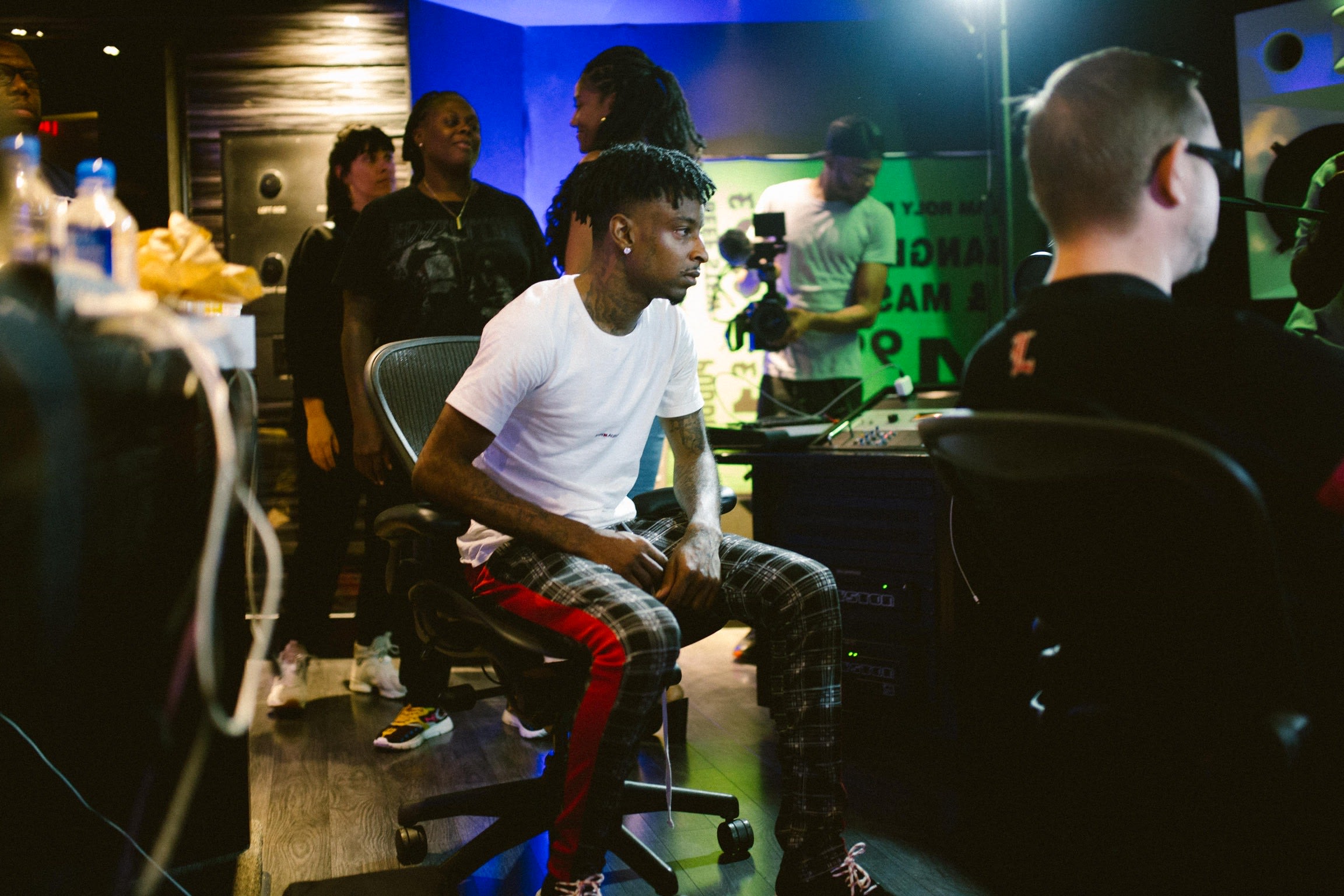
When and how did you find out the song was nominated for a Grammy?
DJ Dahi: When the Grammy nominations came out. I've been nominated for a few other records, but this felt special for the fact that I think you can tell the record took on its own life, for what 21 was dealing with the entire year and what it did culturally. It was a moment for what music means, what it can do, and how it would expand for us. Overall, just to get the recognition is really cool. Win or lose, it shows that the move was important, and I think people recognize that.
J. White: [I found out on social media]. I was hella nervous, because "Money," the other thing I did with Cardi didn't get nominated for a Grammy. And then I didn't see any talk about 21 Savage online. I was like, I know this record should get nominated for a Grammy, but I don't see anything. I was kind of down and out, but then I went on Twitter. I typed in "21 Savage, 'A Lot,' Grammy," and oh my God, there it is. Then I saw the category it was nominated in, and I'm seeing my name attached to it, too. I said, "Oh, okay. We're back. Three times in a row. Let's go!" I'm not going to lie. I swear to you, these are my real reactions.
You each frequently work by yourselves. How did the camp change your perspective on collaborating with multiple producers on one record?
DJ Dahi: I've done a lot of records by myself in my career, but I also have a lot of collaborations with my peers. For a lot of my career, I've been trying to find a fit for bringing my world to somebody else's world, or having other worlds come together. I like the idea of genres clashing and making genre-less music. Sometimes that takes certain things that you personally don't do but somebody else does, and working together with them. That idea of collaboration wasn't really anything new. I guess the new thing for me about the sessions was working with a lot of producers and writers from the South. There were people from Atlanta and people from Texas and people from that region of America. That was the learning point for me. I understand a little bit more why the music is made the way it is.
J. White: You never know what type of magic you're going to make with somebody else. It definitely made me more open-minded to collaborating with other people. Me and DJ Dahi together, we're two totally different people with two totally different sounds. For us to come together like we did, is absolutely amazing.
"I typed in '21 Savage, 'A Lot,' Grammy,' and oh my God, there it is." - J. White
What's the biggest thing you’ve learned from working with 21 Savage?
DJ Dahi: The biggest thing I learned from him is that he is what he is. What I mean is, he's speaking his truth. It's not a game to him. He takes life very, very seriously and doesn't want to portray any falsehoods. I think that's important as an artist, because sometimes people think things are smoke and mirrors. But no, life is real. I think life has its own way of separating the men from the mice. Secondly, I think it was just a matter of him being open. He really wants to take his music to another place, so I think it was dope to see that happen. I became a real fan of him from working with him, and seeing what he wants to say and what he wants to do.
What's next for each of you?
DJ Dahi: I've got stuff coming. I think this year, there'll be a lot more noise for me. I'm working on my album. That's all I can say at the moment. I'm just trying to make a difference.
J. White: More hits on the way. That's my company. That's my label. I'm definitely looking for the next new people, but I've been in the studio with Megan Thee Stallion. I've been in the lab with Usher. I've got a record with Yo Gotti and DaBaby coming. Mary J. Blige. Saweetie. And then I wish I could say this person, but I know I'll get in trouble if I say it. You're going to see something very, very iconic from your boy. I've got an artist who is very iconic, and it's amazing. I can't wait for it to come out. It's a blessing, I'll just say that.

